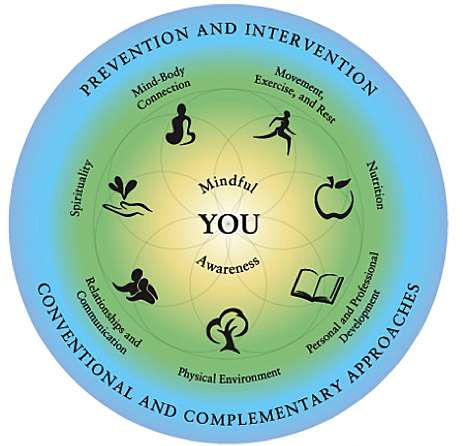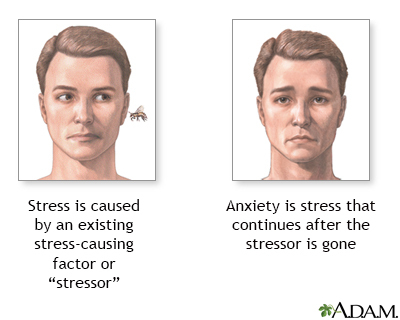New Beginnings – Setting your intentions instead of resolutions
It’s the same song and dance every year – making a list of resolutions for the upcoming new year with the goal of checking every item off the list by the end…

Update your location to show providers, locations, and services closest to you.
We all feel stress at one time or another. It's a normal and healthy reaction to change or a challenge. But stress that goes on for more than a few weeks can affect your health. Keep stress from making you sick by learning healthy ways to manage it.
Stress - managing; Stress - recognizing; Stress - relaxation techniques
LEARN TO RECOGNIZE STRESS
The first step in managing stress is recognizing it in your life. Everyone feels stress in a different way. You may get angry or irritable, lose sleep, or have headaches or stomach upset. What are your signs of stress? Once you know what signals to look for, you can start to manage it.
Also identify the situations that cause you stress. These are called stressors. Your stressors could be family, school, work, relationships, money, or health problems. Once you understand where your stress is coming from, you can come up with ways to deal with your stressors.
AVOID UNHEALTHY STRESS RELIEF
When you feel stressed, you may fall back on unhealthy behaviors to help you relax. These may include:
These behaviors may help you feel better at first, but they may hurt you more than they help. Instead, use the tips below to find healthy ways to reduce your stress.
FIND HEALTHY STRESS BUSTERS
There are many healthy ways to manage stress. Try a few and see which ones work best for you.
RESOURCES
If you can't manage stress on your own, you may want to talk with your health care provider. Or consider seeing a therapist or counselor who can help you find other ways to deal with your stress. Depending on the cause of your stress, you also may find it helps to join a support group.



Ahmed SM, Hershberger PJ, Lemkau JP. Psychosocial influences on health. In: Rakel RE, Rakel DP, eds. Textbook of Family Medicine. 9th ed. Philadelphia, PA: Elsevier Saunders; 2016:chap 3.
American Academy of Family Physicians - familydoctor.org website. Managing daily stress. familydoctor.org/stress-how-to-cope-better-with-lifes-challenges/. Updated August 21, 2020. Accessed December 6, 2022.
National Institute of Mental Health website. 5 things you should know about stress. www.nimh.nih.gov/sites/default/files/documents/health/publications/stress/19-mh-8109-5-things-stress.pdf. Accessed December 6, 2022.


Our community and patient programs provide great value to patients, families and loved ones. People can find support, educational materials, expert consultants and more. In most instances, these programs are offered free of charge.
Dedicated to helping you achieve optimal health and well-being in all aspects of life.
It’s the same song and dance every year – making a list of resolutions for the upcoming new year with the goal of checking every item off the list by the end…

Coloring books aren’t just for kids anymore. Move aside, Strawberry Shortcake and Thomas the Tank Engine — you may have noticed there’s a new breed of coloring…
